Top Class Actions’s website and social media posts use affiliate links. If you make a purchase using such links, we may receive a commission, but it will not result in any additional charges to you. Please review our Affiliate Link Disclosure for more information.
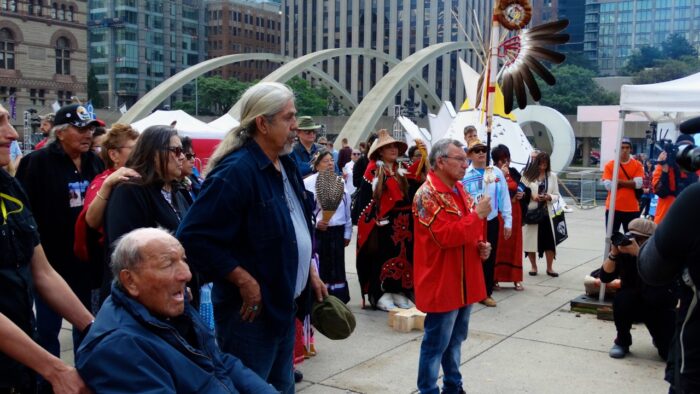
Update:
- On Sept. 24, 2021, the federal court approved the Indian Residential Schools Day Scholars Class Action Settlement.
Canada’s residential school policy ripped away the foundation of identity for generations of Aboriginal People, causing “incalculable harm to both individuals and communities,” a class action lawsuit claims.
However, according to court documents, the federal government denies any legal responsibility for the alleged devastation on First Nations cultures, languages, and communities caused by the school, CBC reports.
The class action lawsuit, which calls for reparations from the federal government, is part of a broader lawsuit originally filed in 2012 by the Tk’emlups te’ Secwepemc and shíshálh Nation in British Columbia — along with residential school survivors known as “day scholars” — who were forced to attend Kamloops Indian Residential School and Sechelt Indian Residential School.
Since the original filing, 105 First Nations have signed onto the class action lawsuit, which is the first to seek reparations from the federal government for the fracturing of communities, cultural suppression, and erasure of languages that allegedly took place at residential schools.
“Canada was also a beneficiary of the residential schools policy, as the policy served to weaken the claims of Aboriginal Peoples to their traditional lands and resources,” the class action lawsuit states.
In August 2020, the class action lawsuit – which was certified in 2015 – was split into two claims: one for day scholars who suffered abuse and one for the First Nations seeking reparations.
Former Assembly of First Nations National Chief Matthew Coon Come, who is involved in the case, told CBC that splitting the case was necessary to restart stalled negotiations with federal lawyers.
Federal Court records show that settlement talks for day scholars have resumed since the case was split, according to CBC. Once a settlement is reached with day scholars, the reparations Class should resume, the news agency reports. Currently, a proposed trial date is scheduled for September 2022.
In court filings, the federal government says that loss of language and culture was an “unavoidable implication” of “children being educated in English or taught the Christian doctrine,” CBC reports, adding that schools were used as a tool to “assimilate” Indigenous people.
However, it says that “a single residential school policy” never existed and the schools did not seek to “destroy the ability…to speak their Indigenous language or to lose the customs or traditions of their culture,” CBC reports.
“While the federal government may have contributed to those losses in various ways, such losses were not as a result of any unlawful acts or omissions of Canada or its employees or agents with respect to the operation of residential schools,” the court filings say.
Meanwhile, University of British Columbia Residential School History and Dialogue Centre Director Mary Ellen Turpel-Lafond told CBC that the federal government needed to take responsibility for the damage caused by residential schools, and that should be done outside of a courtroom.
“Those impacts, it has to be addressed. I don’t think that having to have a class action and fight for it is a good way to do it,” Turpel-Lafond said. “I think a prudent course would be to not make people go to court and have to fight to prove this when it is so obvious what happened.”
This class action lawsuit isn’t the country’s first involving residential schools. However, all previous litigation called for compensation for people who had suffered abuse and harm at the schools.
Just last week, Tk’emlúps te Secwépemc announced preliminary findings from a survey of the grounds at the former Kamloops residential school uncovered an unmarked burial site with the remains of children.
Do you think the federal government should pay reparations for the loss of First Nation languages, culture, and communities that allegedly occurred at residential schools?
Read More Lawsuit & Settlement News:
- First Nations Children’s Advocates Confident of Another Win Against Government
- First Nations File $2.1B Class Action Lawsuit Over Dirty Drinking Water
- First Nations Children Class Action Lawsuits Move Forward
- Qalipu Mi’kmaq First Nation Band Class Action Lawsuit Certified
[/vc_column_text][/vc_column][/vc_row]
ATTORNEY ADVERTISING
Top Class Actions is a Proud Member of the American Bar Association
LEGAL INFORMATION IS NOT LEGAL ADVICE
Top Class Actions Legal Statement
©2008 – 2024 Top Class Actions® LLC
Various Trademarks held by their respective owners
This website is not intended for viewing or usage by European Union citizens.





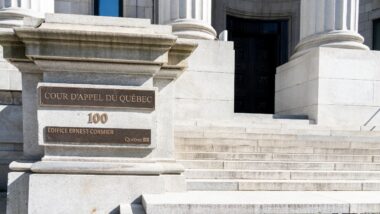



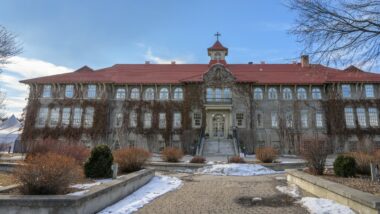
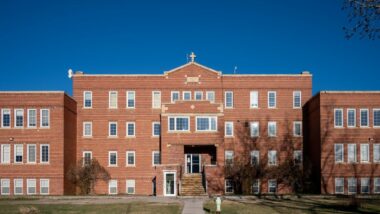
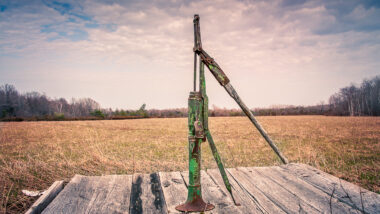
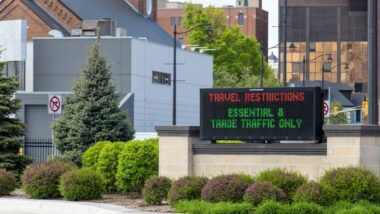

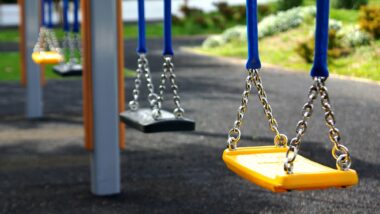


One thought on Canadian Federal Government Denies Liability, Reparations for Cultural Damage to Aboriginal People Caused by Residential Schools
Je pense qu’il faudrait aussi ajouter les enfants qui ont été mis en adoption (Raffle des Années 60 car ceux comme moi, nous avons pas perdu nos langues, nos coutumes et traditions et etc… Nous n’avons tout simplement rien appris de nos langues, nos coutumes, nos cultures, nos traditions et etc… Ce n’est qu’à l’âge de mes 30 ans que j’ai vraiment su que j’étais un membre des Premières Nations du Canada !!! Donc on est en droit nous aussi de demander justice. Merci pour nous donnés une chance de s’exprimer. Bonne journée à vous tous.